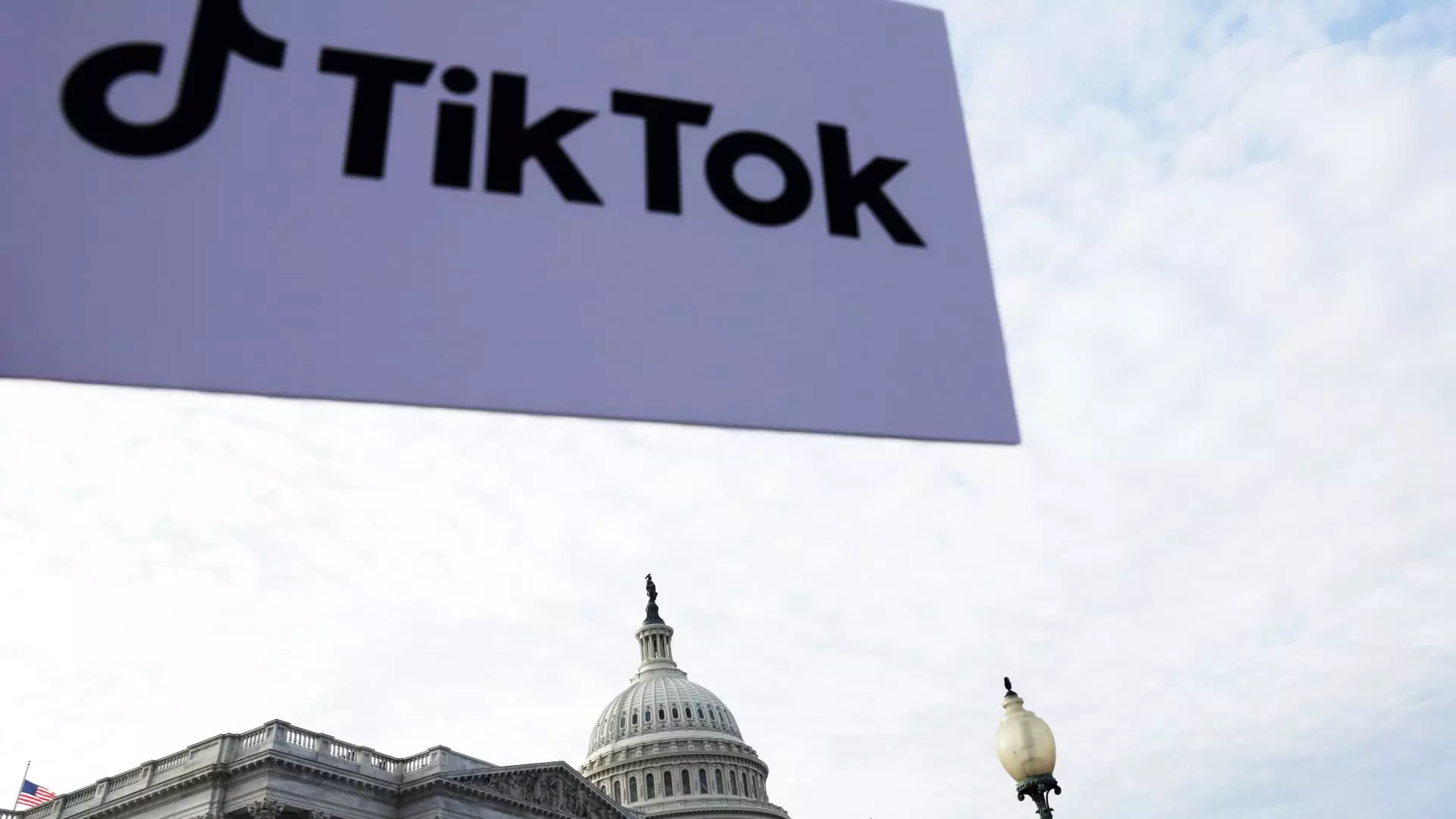The atmosphere surrounding the popular social media platform TikTok is thick with tension as House Committee members intensify their stance against the app, urging major tech players like Apple and Google to prepare for the implications of a law that could culminate in TikTok’s ban in the United States as early as next month. This situation represents not just a fight over the future of a popular app but an unfolding narrative that encapsulates the complexity of U.S.-China relations, digital sovereignty, and the growing need for accountability in the tech industry.
Recent correspondence from Reps. John Moolenaar and Raja Krishnamoorthi has drawn attention to a significant legal development following the U.S. Court of Appeals’ ruling. The court upheld a law mandating that ByteDance, TikTok’s parent company, divest its shares in the app by January 19. Should this divestiture not occur, the lawmakers assert that Apple and Google, as app store gatekeepers, must comply with regulations barring them from maintaining any association with TikTok. The law’s language is unambiguous; it criminalizes any facilitation of the app’s operation within U.S. borders should it remain under foreign adversary control. This puts the onus of compliance directly on these tech giants, emphasizing the intersection of legislative power and corporate responsibility.
This scenario underscores a shift in the role of technology companies from mere service providers to active participants in upholding national regulations. The potential strain on these corporations highlights a critical turning point in their operations as they must navigate the complexities of legal frameworks while also considering the impacts on millions of American users.
The Select Committee’s letters indicate that the government is positioning its stance on TikTok as fundamentally a matter of national security. Having provided a lengthy grace period since the initial law, the lawmakers are firmly requesting accountability from both TikTok and the tech giants. The underlying premise remains that the Chinese ownership of TikTok poses an inherent risk to the personal data of U.S. users, which could be exploited under the auspices of governmental oversight in China.
Such concerns have drawn a firm response from TikTok, with the company labeling the legal moves as unconstitutional and infringing on the First Amendment rights of approximately 170 million American users. This digital battleground echoes a broader scrutiny of how social media platforms manage user data, showcasing that the stakes have escalated beyond legalities and are being refracted through the lens of individual rights, public opinion, and corporate ethics.
TikTok has also highlighted the potential economic ramifications of a U.S. ban, projecting a staggering loss of $1.3 billion in sales and earnings for small businesses and content creators should the app be restricted. In an economy where gig work and digital entrepreneurship have become increasingly vital, the implications of such regulatory decisions could harm not only TikTok but the wider ecosystem of digital content creation that relies heavily on its platform.
As lawmakers feel the pressure to act decisively, the consequences of their actions ripple through various sectors of the economy. The decision to enforce a ban is not merely a matter of media policy but one of economic strategy that reflects how interconnected and dependent the modern economy has become on digital platforms for outreach and engagement.
As the clock ticks toward the January deadline, the future remains uncertain. Even with an emergency motion filed by TikTok, seeking a temporary halt to the enforcement of the ban, questions persist regarding how the Biden administration and incoming political entities will navigate this issue. Observers note that the former stance adopted by President Trump, which sought to impose a TikTok ban amidst national security concerns, has evolved, particularly given the influence of significant investors associated with the platform.
Going forward, this situation may set precedents not only for TikTok but for how governments approach foreign-owned digital services in an increasingly fragmented geopolitical atmosphere. Legislation surrounding technology and data governance is bound to see substantial reform, driven by considerations of national security, economic viability, and user rights. The outcomes of these deliberations will echo through the tech landscape, shaping regulatory frameworks for years to come.

